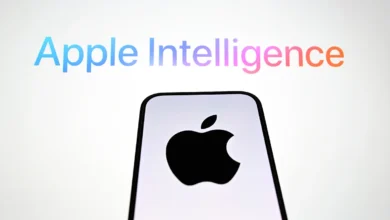301 Terabits per Second : Aston University Achieves 4.5 Million Times Faster Broadband
The internet, the lifeblood of
our modern world, is constantly evolving. But researchers at Aston University
in the UK have just achieved a feat that could redefine what internet speeds
are even capable of. Buckle up, because we’re about to delve into the
mind-blowing world of terabits and explore how this breakthrough could
revolutionize the way we access and share information.
Shattering Speed Limits: 301
Terabits per Second
Imagine downloading an entire
movie library in seconds, or sharing complex scientific data sets with
colleagues across the globe in the blink of an eye. That’s the potential
unlocked by Aston University’s incredible achievement: a data transmission rate
of a whopping 301 terabits per second (Tb/s). To put this into perspective, the
average home broadband connection plods along at a measly 69.4 megabits per
second (Mb/s). That’s a staggering 4.5 million times slower.
Here’s a mind-boggling analogy:
If it took one second to download a movie at the average broadband speed, this
new technology could download the entire Internet Movie Database (IMDb) in
roughly the same amount of time!
Unlocking the Secrets of
Light: How Did They Do It?
The Aston University team, led by
Professor Wladek Forysiak and Dr. Ian Phillips, achieved this remarkable feat
by harnessing the power of fiber optics – the same technology that underpins
most modern internet connections. The secret lies in utilizing a new technique
that unlocks previously unused wavelengths within the fiber optic cables.
Think of a highway with multiple
lanes. Traditional broadband uses only a few of these lanes for data
transmission. Aston University’s innovation opens up a whole new spectrum of
lanes, allowing for a massive increase in data flow without needing to replace
the existing infrastructure.
This is particularly exciting
because it signifies a potential future-proof solution. Upgrading entire
internet networks is a costly and time-consuming endeavor. By utilizing
existing fiber optic cables and unlocking their full potential, this technology
offers a scalable and cost-effective way to meet the ever-growing demand for
data.
Beyond Downloading Movies: The
Broader Impact
While downloading entire movie
libraries in seconds is a fascinating prospect, the true impact of this
research extends far beyond entertainment. Here are just a few areas where this
groundbreaking speed could revolutionize various fields:
- Scientific Research: Researchers across the
globe could collaborate on complex projects involving massive datasets,
accelerating scientific discovery and innovation. - Telemedicine: Imagine real-time medical
consultations with specialists regardless of location, allowing for faster
and more efficient diagnosis and treatment. - Artificial Intelligence (AI): AI development
relies on vast amounts of data for training and processing. These speeds
could power the next generation of AI with unprecedented capabilities. - Virtual Reality (VR) and Augmented Reality (AR):
Imagine seamless and immersive VR experiences without lag or buffering,
opening doors for advancements in education, training, and entertainment.
The Road Ahead: From Research
to Reality
While this achievement signifies
a monumental leap forward, it’s important to remember that it’s still in its
early stages. Further research and development are needed to refine the
technology and ensure its commercial viability.
However, the potential
applications are undeniable. Aston University’s groundbreaking research offers
a glimpse into a future where internet speeds are no longer a bottleneck, but
rather an enabler for boundless innovation and progress. The journey from
research lab to everyday use might take some time, but one thing’s for sure:
the future of the internet is blazingly fast.




